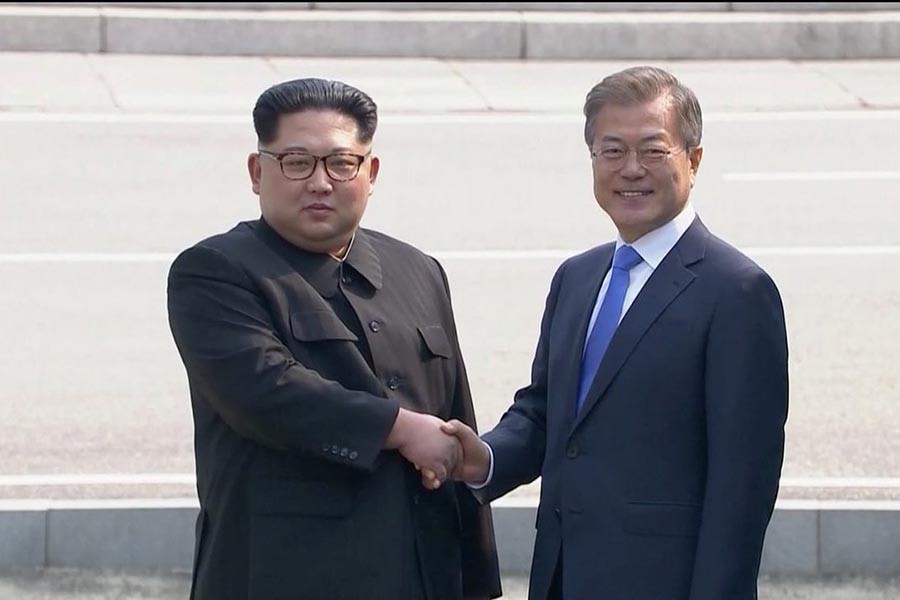
Published :
Updated :

Republic of Korea (ROK) President Moon Jae-in seems to be playing a major role in establishing peace on the Korean Peninsula. Peace has been elusive in the Peninsula since the 1950-1953 Korean War. The South Korean President, along with his wife, visited Pyongyang at the invitation of Supreme Leader of the Democratic People's Republic of Korea (DPRK) Kim Jong-un for three days since September 17. The President of the South was given rousing reception on arrival at Pyongyang. He became the first Head of the State from Seoul visiting Pyongyang.
Talks between the two leaders resulted in signing of the Pyongyang Declaration on September 19. It hopes that the DPRK and USA would soon return to the table for denuclearisation talks. This is the second such declaration since the signing of Panmunjom Declaration in April this year by the two leaders. Having signed the declaration, the North and South Korean leaders pledged to make the Korean Peninsula a land of peace without nuclear weapons or nuclear threats and vowed to take further steps towards denuclearisation.
On the sideline of the summit, the defence ministers of two Koreas signed a military agreement to reduce tension along the border that covers creating a 'no-fly zone' on the first of November this year along the border. Similarly, both the sides will halt artillery and other military drills close to the demilitarised zone. The two sides also agreed to dismantle several of the 'heavily-armed guard posts' they constructed inside the demilitarised zone and to create a maritime peace zone in the West Sea.
The two countries agreed on cross-border exchanges plus economic cooperation that includes joint projects within one year to connect railways and roads across the border. They agreed to resume Kumgangan tours and re-open Kaesong Industrial Park, where workers from North and South are employed. This industrial park was closed by the South Korean administration of President Park Geun-hye in February, 2016.
President Donald Trump hailed the Moon-Kim summit and tweeted that the offer of denuclearising the Korean Peninsula was 'very exciting.' China, Japan and Russia also welcomed the development following summit between the two Korean leaders.
A significant development was the signing of military agreement by the two countries to make demilitarised zone free from tension. Similarly, the North's leader also committed towards accepting the international inspectors to verify destruction of missile test site plus launch pad.
The DPRK leader offered to permanently dismantle the country's main nuclear weapons production site if the US made concessions first. Mr Kim is also reported to have said that he wanted corresponding measures from the US before shutting down the Yongbyon Nuclear Scientific Research Center.
On his return to Seoul, the ROK President reportedly said that there were things that the US wants his country to convey to the North and things that the North wants the South to convey to the US. The South Korean President said he will hand over a message from the North Korean leader to the US President when he meets him in New York next week on the sidelines of the UN General Assembly session. The South Korean President is thus playing the role of a matchmaker between the US and DPRK.
Mohammad Amjad Hossain is a retired diplomat from Bangladesh and former President of Toastmaster International Club of America. amjad.21@gmail.com


 For all latest news, follow The Financial Express Google News channel.
For all latest news, follow The Financial Express Google News channel.